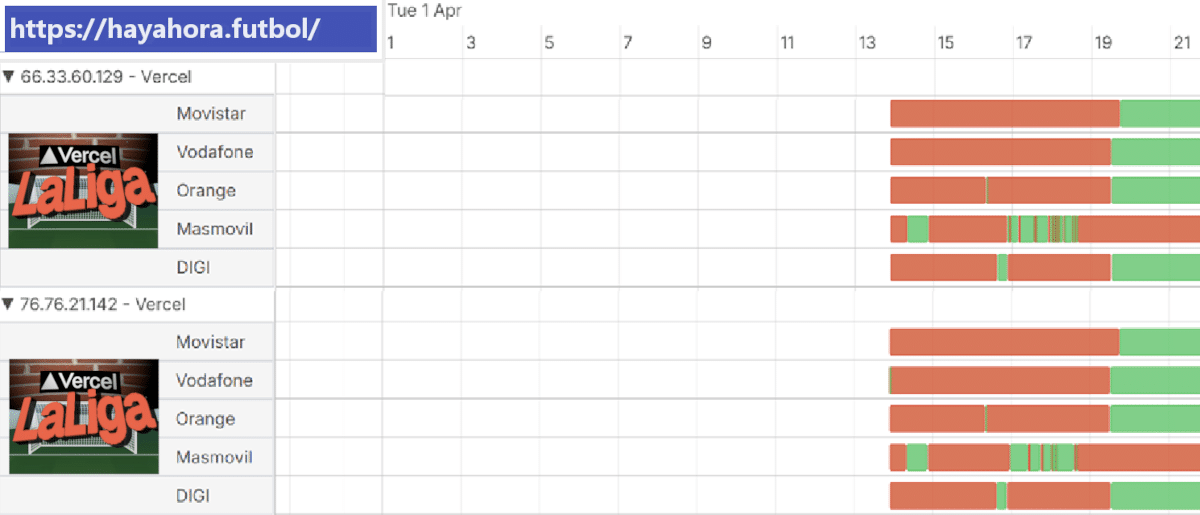Block Mirror Sites: Understanding The Technology And Its Ethical Considerations

Table of Contents
Understanding Mirror Website Technology
What are Mirror Sites?
Mirror websites are essentially identical or near-identical copies of an original website. They are created for various reasons, and their purpose can range from legitimate to illicit. A common example might be a website offering a backup server for increased website availability. However, they are often used to circumvent censorship, distribute copyrighted material illegally, or evade detection by law enforcement.
-
Different types of mirror sites:
- Exact copies: These are verbatim duplicates of the original website's content and structure.
- Modified versions: These might include altered content, different branding, or adjusted functionality.
-
Methods used to create mirror sites:
- Automated scripts: These can rapidly replicate website content.
- Manual copying: This involves manually transferring content, which is slower but allows for more customization.
- Content Delivery Networks (CDNs): Legitimate CDNs can also be misused to host mirror sites.
-
Motivations behind creating mirror sites:
- Circumventing censorship: In countries with strict online censorship, mirror sites are often used to access blocked content.
- Distributing illegal content: Copyright infringement, pirated software, and illegal streaming services frequently utilize mirror sites to evade detection.
- Increasing website availability: Legitimate websites may use mirrors to improve performance and reliability.
Methods for Blocking Mirror Sites
Several techniques exist for blocking mirror sites, each with its own strengths and weaknesses. Effective strategies often involve a combination of methods.
- IP address blocking: This involves identifying the IP addresses associated with mirror sites and blocking access to them. However, this is often ineffective as mirror sites frequently change IP addresses.
- Domain name system (DNS) blocking: This method blocks access to mirror sites by preventing their domain names from resolving to IP addresses. This is a more effective approach than IP blocking, but mirror sites can use different domain names.
- Content filtering technologies: These technologies analyze website content for specific keywords, phrases, or file types associated with illegal or harmful content. This can be effective but may lead to false positives.
- URL analysis and pattern matching: Advanced techniques can identify patterns in URLs used by mirror sites to predict and block new instances.
- Using AI and machine learning for proactive detection: AI-powered systems can analyze large datasets to identify and block mirror sites more efficiently, even when they employ obfuscation techniques.
Technological Challenges in Blocking Mirror Sites
Effectively blocking mirror sites is a constant battle against ingenuity and adaptation.
- The dynamic nature of mirror sites: New mirror sites are constantly created, rendering static blocking lists quickly obsolete.
- The use of anonymizing technologies: Tools like VPNs and proxies can mask the source of mirror sites, making it difficult to identify and block them.
- The international nature of the internet and jurisdictional challenges: Mirror sites hosted in countries with lax regulations can be difficult to shut down, even with legal orders.
Ethical Considerations of Blocking Mirror Sites
The ability to block mirror sites raises significant ethical concerns. The balance between protecting intellectual property, maintaining public safety, and upholding freedom of speech is delicate and often contested.
Freedom of Speech and Censorship
Blocking mirror sites can be seen as a form of censorship, especially when it restricts access to legitimate content or viewpoints.
- Arguments for and against blocking access to certain websites: The debate hinges on weighing the potential harm of the content against the right to access information.
- The potential for abuse of blocking technology: Governments or private entities could use blocking technology to suppress dissent or control information.
- The role of governments and private entities in censorship: Determining who has the authority and responsibility for deciding which websites to block is a critical ethical issue.
Copyright Infringement and Intellectual Property
Blocking mirror sites is a crucial tool in protecting intellectual property rights.
- The legal frameworks governing copyright infringement: International and national laws provide a legal basis for removing copyrighted material from the internet.
- The effectiveness of blocking technology in combating copyright infringement: While effective in some instances, it's difficult to completely eliminate illegal copies.
- Balancing intellectual property rights with freedom of expression: The challenge is to protect creators' rights without unduly restricting access to information.
Privacy Concerns
The technologies used to block mirror sites can also raise privacy concerns.
- Data collection and surveillance by blocking services: These services often collect user data to identify and block mirror sites, which raises concerns about potential misuse.
- The transparency of blocking mechanisms: The lack of transparency around how blocking technologies work can make it difficult to assess their fairness and accuracy.
- Potential for abuse of user data: Collected data could be used for purposes beyond simply blocking mirror sites.
Conclusion
Effectively blocking mirror sites necessitates a sophisticated understanding of the underlying technology, from IP address and DNS blocking to advanced AI-driven solutions. However, the technological capabilities must always be weighed against significant ethical considerations, particularly concerning freedom of speech, copyright protection, and individual privacy. The dynamic nature of the internet and the constant evolution of mirroring techniques present ongoing challenges. By understanding the intricacies of how to block mirror sites and thoughtfully considering the ethical dimensions, we can work towards a safer and more responsible digital environment. Continue researching and engaging in informed discussions surrounding these crucial issues. Learn more about effective strategies to block mirror sites while upholding ethical principles. Responsible development and deployment of mirror site blocking technologies are paramount to navigating this complex landscape.

Featured Posts
-
 Alsn Lys Eayqa Elaqt Twm Krwz Wana Dy Armas Mhl Ahtmam
May 16, 2025
Alsn Lys Eayqa Elaqt Twm Krwz Wana Dy Armas Mhl Ahtmam
May 16, 2025 -
 Steam Free Game User Reviews And Download Guide
May 16, 2025
Steam Free Game User Reviews And Download Guide
May 16, 2025 -
 Is La Ligas Piracy Block Censorship Vercel Weighs In
May 16, 2025
Is La Ligas Piracy Block Censorship Vercel Weighs In
May 16, 2025 -
 New Free To Play Game On Steam What Players Are Saying
May 16, 2025
New Free To Play Game On Steam What Players Are Saying
May 16, 2025 -
 Tom Cruises Unpaid Debt To Tom Hanks The 1 Movie Role Mystery
May 16, 2025
Tom Cruises Unpaid Debt To Tom Hanks The 1 Movie Role Mystery
May 16, 2025
Latest Posts
-
 7 12
May 16, 2025
7 12
May 16, 2025 -
 Hl Yjmehma Alhb Alhdyth En Elaqt Twm Krwz Wana Dy Armas
May 16, 2025
Hl Yjmehma Alhb Alhdyth En Elaqt Twm Krwz Wana Dy Armas
May 16, 2025 -
 Ana Dy Armas Wtwm Krwz Qst Hb Jdydt Rghm Farq Alsn
May 16, 2025
Ana Dy Armas Wtwm Krwz Qst Hb Jdydt Rghm Farq Alsn
May 16, 2025 -
 Thlyl Elaqt Twm Krwz Wana Dy Armas Hqyqt Am Shayeat
May 16, 2025
Thlyl Elaqt Twm Krwz Wana Dy Armas Hqyqt Am Shayeat
May 16, 2025 -
 Fjwt Emryt Kbyrt Hl Twthr Elaqt Twm Krwz Wana Dy Armas
May 16, 2025
Fjwt Emryt Kbyrt Hl Twthr Elaqt Twm Krwz Wana Dy Armas
May 16, 2025
